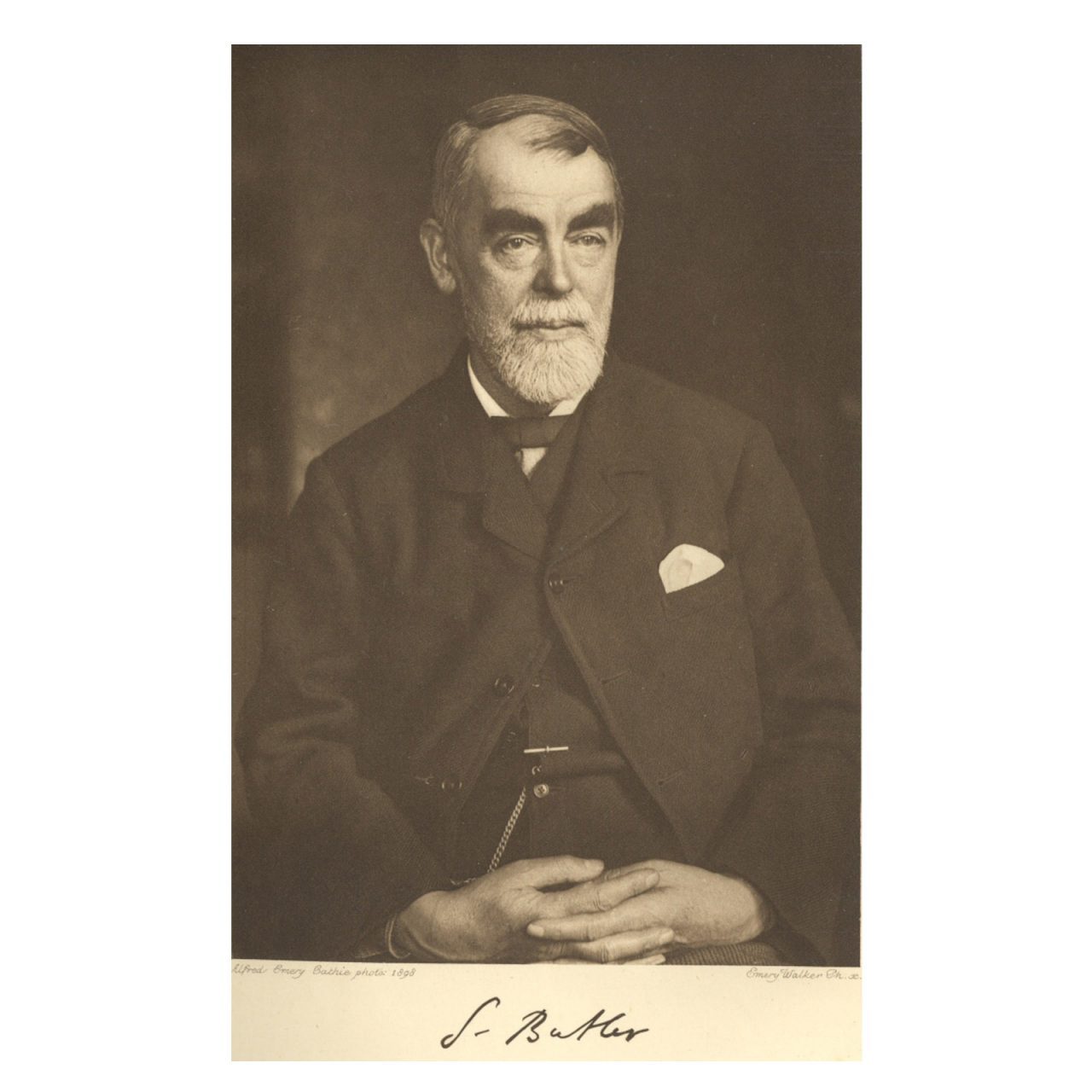Samuel Butler & 'The Way of All Flesh'
According to Samuel Butler’s biographer, Peter Raby, The Way of All Flesh is “an uneven, extraordinary and unforgettable book, evoking strong emotions of recognition and horror, and shattering forever the sacred English totem, the idea of the family.” This novel is a cry from the heart against the inhumanity of parents to their children, it is a challenge to all types of dogmatism and authority, and a scathing expose of hypocrisy and greed.
Hailed by George Bernard Shaw as “one of the summits of human achievement”, The Way of all Flesh covers five generations of a family, focusing chiefly on the relationship between Ernest and his father, Theobald. Family sagas of the Victorian and Edwardian eras tended to show a family growing from rags to riches, making successful marriages and money, this book turns that plot inside out. It ends where it began, with tradespeople earning their livings respectably and with satisfaction.
“The advantage of doing one’s praising for oneself is that one can lay it on so thick and exactly in the right places.” ― The Way of All Flesh, Samuel Butler
I first read this novel as a teenager. In so many ways it was ‘foreign’ to me. I had fantastic, loving parents; I was a happy atheist whose life had not been troubled by religion; I had been able to study the subjects I loved; and I got on famously with all my siblings. And yet I felt the book’s power. It has to be one of the most ferocious novels ever written, and is a superb indictment of hypocrisy and the evils of fake piety. Its energy, bite and its attacks on so many aspects of the 19thC meant that I could never view Victorianism in quite the same way again after reading it.
Today this tends to be a book which many people have heard of, but never read, and have certainly never watched in a film version. And yet it is a book which everyone ought to read, which is why I included it in my literary series. You may not ‘enjoy’ it, but I hope you feel its power and that it makes you stop and think.
Here is where to buy the book in print, ebook or audio. Find the books on my recommended reading list, watch a movie version, enjoy related videos, websites and much more. Have anything to add here? Let me know.
PURCHASE
The Way of All Flesh by Samuel Butler
The Way of All Flesh – Audiobook by Samuel Butler, narrated by Frederick Davidson
Samuel Butler: A Biography by Peter Raby
Father and Son by Edmund Gosse
The Way of all Flesh by Ambrose Parry
FREE DOWNLOAD
The Way of All Flesh by Samuel Butler. Free downloadable version in various formats including Kindle, epub, pdf and others. If you are unsure of how to add these files to your ereader, look here.
The Way of all Flesh – Librivox free audio book by Samuel Butler, narrated by Rhonda Federman.
FIND IN A LIBRARY (You will need to create an account and hold a library card.)
The Way of All Flesh by Samuel Butler National Library of Australia free public access to books in libraries at Trove.
MOVIES
There is a 1927 silent movie made in the USA called The Way of All Flesh – unfortunately it has nothing whatsoever to do with Butler’s novel of the same name. No film director seems to have been tempted to turn Butler’s story into a movie or TV series. Perhaps it is too harsh and bleak.
LINKS
Purchase my Literary Reader’s Guide to Samuel Butler & The Way of all Flesh.
This Literary Readers’ Guide is a real treat! In it I reveal intriguing stories about the author to help you understand what prompted this book to be written. I identify the main characters and their roles, analyse the themes behind the story, and describe the influence that the era, lifestyle and circumstances have on the book’s setting. Included are 8 thought-provoking discussion points, perfect for books clubs or just to get you thinking a bit harder yourself.
Buy it now and receive your guide by immediate download.
100% guaranteed. If you don’t feel my guides are great value for money, please let me know why and I will refund your purchase price.
[ec_addtocart productid=”62″]
FAST ORDER HERE Get the full-length Literary Reader’s Guide for just $5 by immediate download.
I’m interested to hear what you think, so please tell me in a comment.
I only recommend books I have read or know. Some of these links are my affiliate links. If you buy a book by clicking on one of these links I receive a small commission. It doesn’t cost you anything extra, but does help cover the cost of producing my free newsletter.
I always love to hear what you think.
![Samuel Butler, Family Prayers, 1864, [cropped]](https://susannahfullerton.com.au/wp-content/uploads/2019/06/Butler-The-Way-of-All-Flesh-Monograph-cover-med.jpg)



mark taha
I’m certain it was adapted as a TV play in the mid – 60s.
Susannah Fullerton
Thanks for letting me know. I couldn’t find anything on-line about theatrical version.
Deb
What a remarkable coincidence: the unusual name Alethea in this book and the last one!
Susannah Fullerton
Yes, isn’t it. Jane Austen had a friend called Alethea, so maybe it was much more common in the early 19thC, but it’s not a name you hear today except in books.